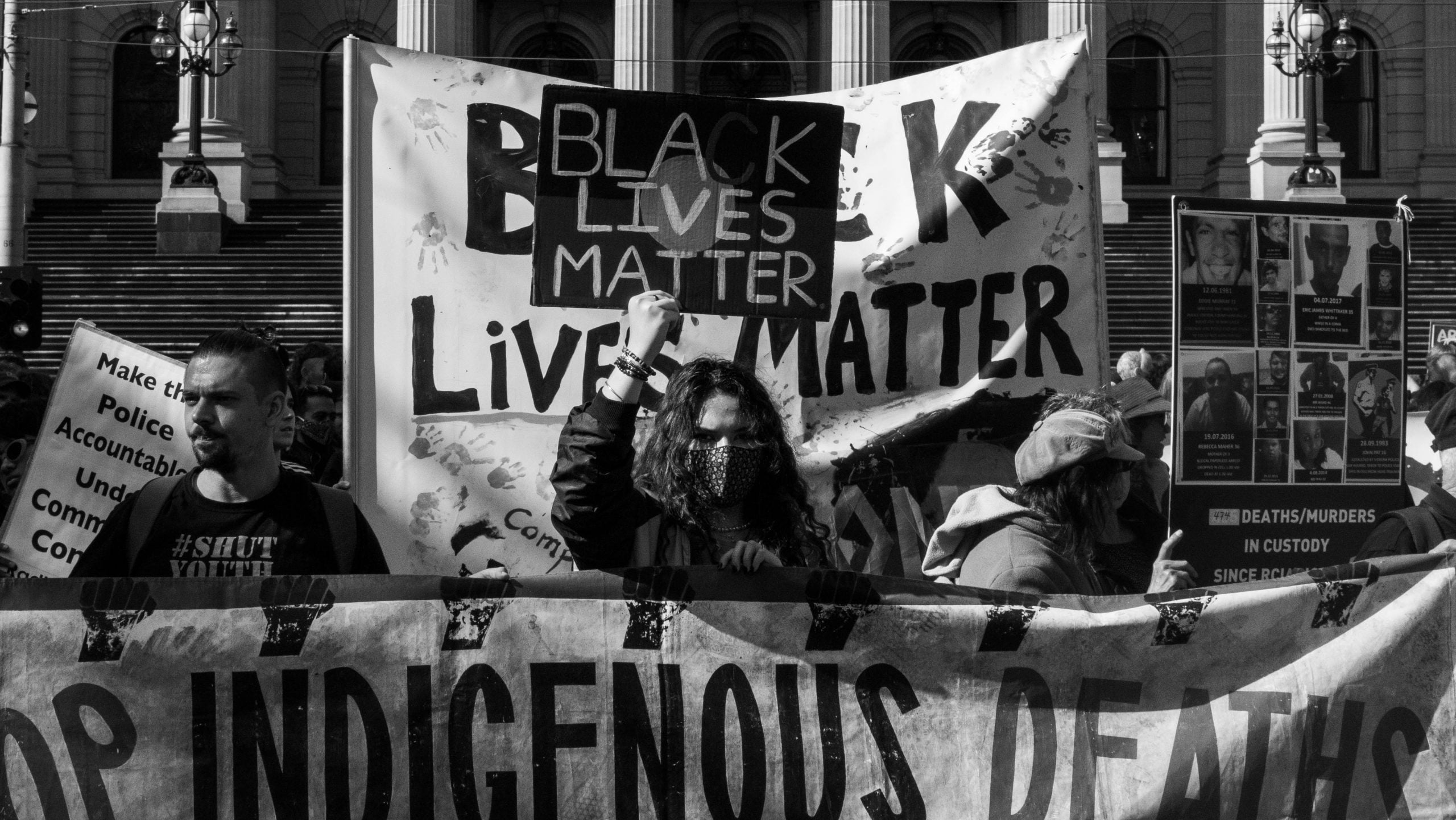In the world
By: Kristina Roth & Alli McCracken Jarrar
The 25th of May 2020 was a day that changed the world forever.
Officer Derek Chauvin and three other Minneapolis Police Officers tortured and extrajudicially executed George Floyd. Darnella Frazier, a 17-year-old Black woman, filmed the murder, released the video, and the planet erupted with rage at yet another police killing of a Black man in the USA. George Floyd was a father, a brother, a son, a partner, and a friend. His life was cut short, over a call to the police over a potentially fraudulent cash bill.
The video of George Floyd’s killing by Minneapolis police officers shocked the global conscience, but abusive and excessive policing of Black people by law enforcement officers is as old as policing in the USA itself. In the South, the profession of policing has early roots in the slave patrols created by slave masters who used these brutal patrols to retrieve, beat, punish and often kill their property – Black bodies.
Systemic, anti-Black racism is at the core of the current US criminal legal system, as is evident in the killings of Black and Indigenous people, who are most significantly overrepresented among other races. In the USA, two different justice systems persist: one where some people get tickets, and some people get murdered for low-level offenses, and melanated people may be perceived as presenting a threat by simply being.
George Floyd was one out of over 1,000 lives taken every year at the hands of the law enforcement officers in the United States. He was another person taken from their family by violence that impacts Black, Indiginous, and Brown communities every day.
George Floyd should still be alive today.
Police violence is a leading cause of death for young men in the United States. In the USA, about 1 in every 1,000 Black men can expect to be killed by police in their lifetime. Between 2015-2020, 30% of people shot and killed by police were cited as exhibiting signs of mental illness. Despite these dismal rates of violence, most law enforcement officers are not held accountable for unlawful killings, and are able to act with impunity for excessive and sometimes deadly use of force, particularly against Black people. Between 2005 and 2019, only three state or local law enforcement officers were convicted of murder in deadly force cases.
Even in the context of a pandemic, after the murder of George Floyd people spilled into the streets to protest police violence, racial discrimination, and the scourge of white supremacy, including in many countries with colonial foundations.
The United States recorded its largest protests in the history of the country’s existence. People from Indonesia to New Zealand, from Switzerland to Argentina and beyond all took action in different ways, both online and offline, to demand justice for George Floyd, and show solidarity with the rights of Black people to survive interactions with law enforcement and the Black Lives Matter struggle in the United States.
This movement truly is a global effort: while racism and human rights violations by the police in the United States are horrific, they are global issues that impact every country, and they require a global effort to end them. People have shown up, and the movement won’t be stopped.
We must not lose sight of the history that persists in the way that law enforcement is carried out today, nor the pain it has caused that has devastated generations of families.
Despite the settlement in the George Floyd civil lawsuit and the guilty verdict against officer Derek Chauvin, there can be no real justice for this horrific crime. For too many families directly impacted by violence inflicted by law enforcement officers, there can never be justice. States must seek to adopt measures of accountability for violating people’s human rights, and we must look closely at the size and scope of law enforcement in daily life, including situations in which an armed responder too often results in a deadly encounter.
George Floyd’s six-year-old daughter, Gianna, said she knew her father would change the world, and she was right.
We must move forward, with the history that got us here in mind, and work to embrace systems of public safety that respect all people’s human rights to to life, to be free from discrimination and to equal protection under the law.
Kristina Roth is the Senior Advocate for the Criminal Justice Program at Amnesty International USA. Alli McCracken Jarrar is Amnesty International’s Campaigner for North America.
At home
In Australia, George Floyd’s death sparked protests as the nation highlighted the similarly tragic treatment of our First Peoples in the judicial system. People took to the streets in cities across the country to say loud and clear: #BlackLivesMatter.
Since the Royal Commission into Aboriginal Deaths in Custody in 1991, more than 470 people have died in police custody without a single conviction recorded and Indigenous people remain grossly over-represented in Australia’s prison system. Read the media statement here.
Amnesty International Australia continues to call for independent and transparent investigation of such incidents.
“We stand in solidarity with the families of all unarmed people of colour who have died in police custody. To think this is a problem ‘over there’ and that Australia is free of racialised violence, is to fundamentally misunderstand the issues in our back yard.”
Sam Klintworth, National Director, Amnesty International Australia
Amnesty International is calling for bi-partisan support of a National Anti-Racism Strategy and for those responsible for the ongoing deaths in custody of our First Peoples to be held to account.
